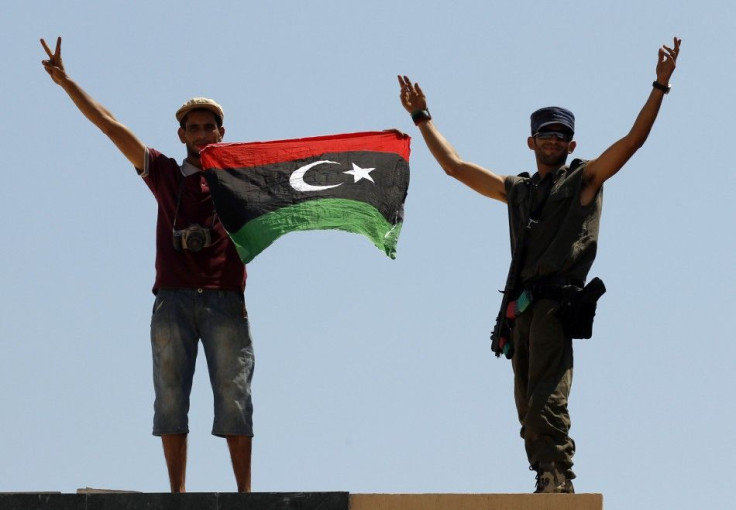China officially recognizes Libyan rebels

China recognized the rebel National Transitional Council (NTC) as Libya's ruling authority, the Chinese Foreign Ministry said on Monday, saying the Council had vowed to respect Beijing's interests after tensions between the two sides.
The announcement on the ministry's website (www.mfa.gov.cn) ended weeks of uncertainty about when Beijing would formally embrace the rebel forces who have overwhelmed Muammar Gaddafi's beleaguered supporters.
China had been, along with Russia, one of the few major countries to withhold recognition from the rebels, and Beijing's relations with the new ruling NTC were further strained by revelations that Chinese state-owned arms companies talked with Gaddafi's representatives about weapons sales.
Chinese Foreign Ministry spokesman Ma Zhaoxu sought to put all that in the past when he announced his government's decision to recognize the NTC.
China recognizes the Transitional Council as the governing authority in Libya and representative of the Libyan people, and we are willing to work with it to promote the stable transition and development of Sino-Libyan relations, said Ma.
We hope that the various treaties and agreements previously signed between China and Libya will continue to remain effective and be conscientiously implemented, said Ma.
The Chinese announcement cited an unnamed Libyan rebel leader as expressing satisfaction that Beijing had recognized the NTC, promising to abide by past treaties and agreements, and welcoming China's participation in rebuilding the war-ravaged north African country, where fighting continues.
If that is the NTC's official position, it will come as a relief to China, which was criticized by some rebels.
Libya's interim council has promised rewards for those who took a leading role in backing the revolt against Gaddafi, and has raised concerns that China could be disadvantaged.
Last week, the Chinese Foreign Ministry acknowledged that Chinese arms firms held talks with representatives of Gaddafi in July over weapons sales, but said the talks were behind Beijing's back and never resulted in arms being shipped.
As well, although China had agreed with other powers to unfreeze $15 billion of Libyan assets abroad, it opposed handing control of more to the interim ruling council, citing worries about oversight and control of the funds.
China did not use its U.N. Security Council veto power in March to block a resolution that authorized the NATO bombing campaign against Gaddafi's forces, but it condemned the expanding strikes and repeatedly urged compromise between his government and the rebels.
China is the world's second-biggest oil consumer and last year obtained 3 percent of its imported crude from Libya.
The Toronto Globe and Mail reported that documents found in the Libyan capital, Tripoli, indicated that Chinese companies offered to sell rocket launchers, anti-tank missiles and other arms with a total of some $200 million to Gaddafi's forces, despite the U.N. ban on such sales.
© Copyright Thomson Reuters 2024. All rights reserved.











